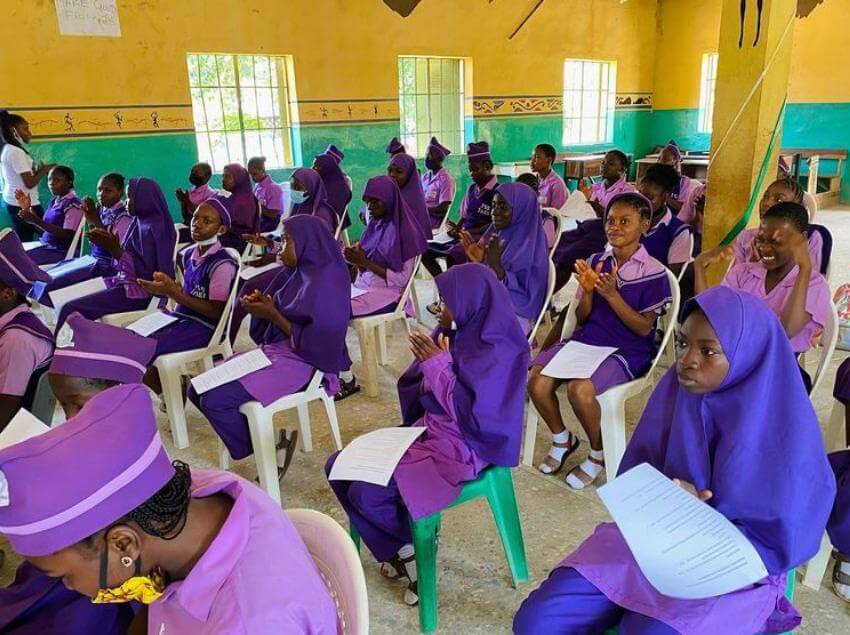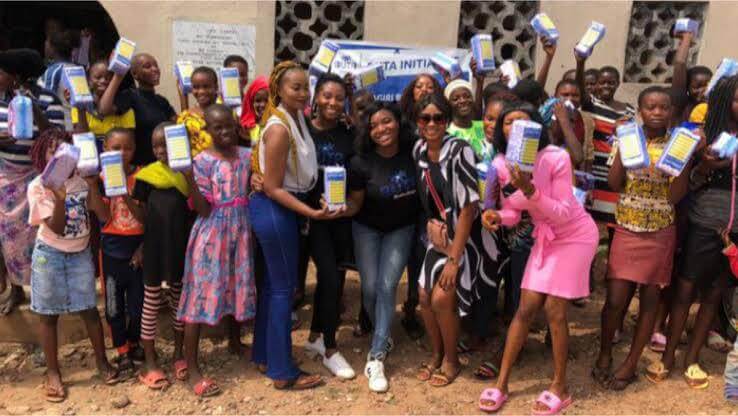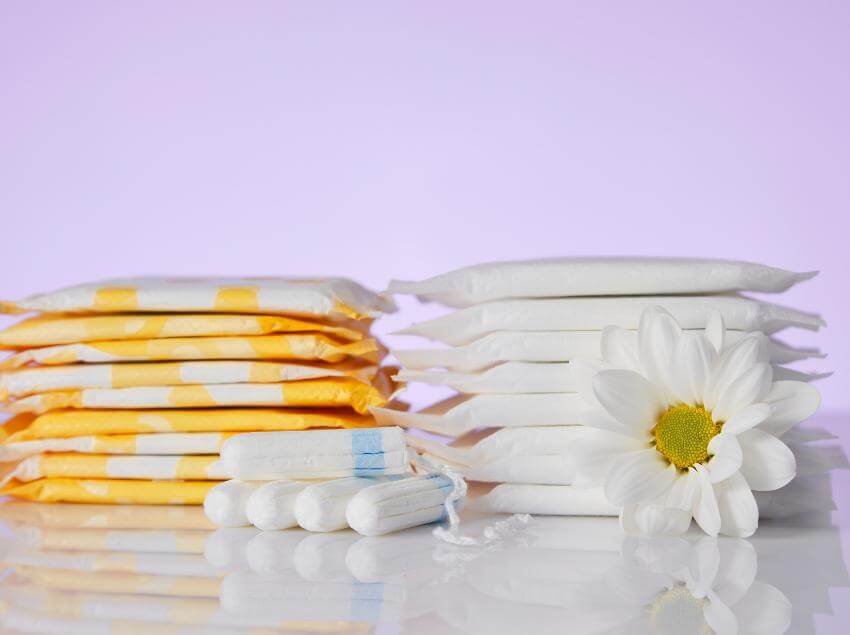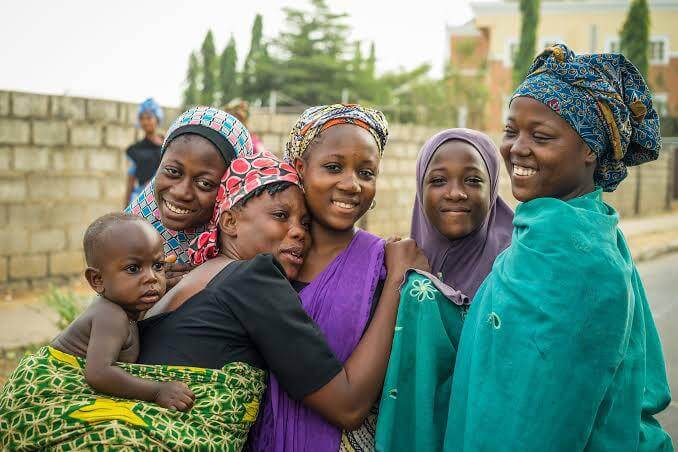A report jointly sponsored by Thinx Inc. (American period-proof underwear making company) and Period (an NGO campaigning against period poverty and stigma) found that many female students skip school while menstruating because they lack access to feminine hygiene products. And poverty has been identified as the major hindrance to obtaining these products.
Period poverty refers to a situation where women cannot afford the sanitary products they need to tackle mensuration and maintain proper hygiene. It also describes the lack of access to these products and the lack of information women need regarding their menstrual cycles.
Young girls between the age of 11 and 18 are the most affected by period poverty. Due to the unsafe and unhygienic state of the toilet facilities in most schools, many struggle to properly use and dispose of sanitary products. The fear of leakage and the embarrassment of being stained keep some girls from school, especially in rural areas. As a result, UNESCO reports that 1 in 10 girls in Africa often miss schools.
These young girls are still dependents, whose parents are more concerned about feeding and survival to prioritise menstrual awareness. As a result, they are forced to learn about mensuration only after they’ve experienced it, and the first time is usually the scariest. Without necessary guidance, they are left to navigate this confusing part of their lives in secret and with shame.
Older women are not exempted from the effects of period poverty. According to the National Bureau of Statistics, Nigeria records over 40% of its people living in poverty. More than half are women of fertile age.
Mensuration on its own is hard to manage, especially in Nigeria, where the topic is shrouded in shame and secrecy. Something everyone pretends women don’t experience, yet we all would not exist without it. The stigma is so ingrained that women are ashamed to share their experiences. Mensuration is viewed as dirty and treated like a taboo when it should be seen as natural as peeing.
During the old days, women adopted different methods to help protect themselves from bleeding through their clothes. They fashioned period pads out of tree bark, cotton, leaves, and sponges. Most of these practices are unhygienic and could lead to infections.
Now, sanitary pads and tampons exist but are far from affordable. A pack of pads ranges from 400 Naira to 1000 Naira. Many women cannot afford that every month, especially in cases where more than one packet is needed for a cycle. Due to the cost of purchasing menstrual products, low-income women are returning to less expensive ways to manage their cycles. They use tissue papers, newspapers, clothes, and napkins in place of sanitary pads to collect menstrual flow. These alternatives are uncomfortable, not to mention unhygienic.
Looking at the importance of menstrual products, one begins to wonder how groceries, food, medicine, and toilet paper are tagged as essential goods by the government. Products we can’t do without and so are sold at subsidised rates. Yet female sanitary products are categorised as luxury goods and are taxed as such.
“I suspect tampons are taxed because men were making laws when those taxes were passed”, Barack Obama once said in a 2016 interview with youtube personality Ingrid Nielson.
He believes no woman on the planet sees menstruation as a luxury.
Luxury goods are things you can do without, something you treat yourself to because you can afford to. Women do not have the luxury to choose whether or not they want to menstruate, making sanitary products an absolute necessity.
On the matter of tax, the 2019 finance act signed by President Mohammed Buhari was to ensure that the cost of living does not rise for Nigerians because of changes in the value-added tax. Sanitary pads were amongst the items added to the list of exempted goods. The act raised the VAT from 5% to 7.5%, but that did very little to tackle the problem of period poverty. In fact, since then, the price of sanitary products has kept going up. Most sanitary products available in Nigeria are imported as finished products or near-finished products, which means they are far from affordable.
A few organisations have established initiatives and programmes that educate young girls in Nigeria about mensuration. Nigerian influencer, Lolo Cynthia, created the #nodayoff campaign in 2019. The campaign tackled absenteeism in schools due to period poverty, and during the campaign, Lolo provided 1000 pads to women in her community. She also made it her duty to teach girls how to fashion reusable pads from linens and cloths.
The Bukola Taiwo Initiative is another organisation championing the fight against period poverty. With Bukola Mary Taiwo as its Executive Director, the program stretched its mission to rural communities to educate young girls on maintaining period hygiene.
Both initiatives mentioned above continue to push the need to alleviate period poverty in the country, and they have noted changes in the communities they’ve visited. No matter the scale of their work, these organisations still need the government’s assistance to affect real change.
In 2020, the Scottish government passed a bill to make sanitary products free to its consumers. The remarkable legislation was celebrated by the world watching. The provision bill cost an estimated 24million pounds. The Scottish government proved to the rest of the world that it’s not an easy task (especially in distribution and strict adherence to the law), but it is possible.
New Zealand is another prime example of a country actively tackling period poverty. Jacinda Arden, the Prime Minister, signed a bill on February 18th, 2021. The bill authorised the distribution of free menstrual products to students in schools across the country.
“Young people should not miss out on their education because of something that is a normal part of life for half the population,” she said in a statement.
The bill was quite similar to that of Kenya’s. In 2017 Kenya signed the Basic Education Amendment Act into law. This law provides free quality pads to girls in state schools.
Although some countries are actively tackling period poverty, Nigeria is still lagging. We can only hope that more platforms continue to spread awareness on the need to eradicate period poverty. Hopefully, soon, women can have cheap and easy access to the help they need regarding menstruation.










Comments
Loading…